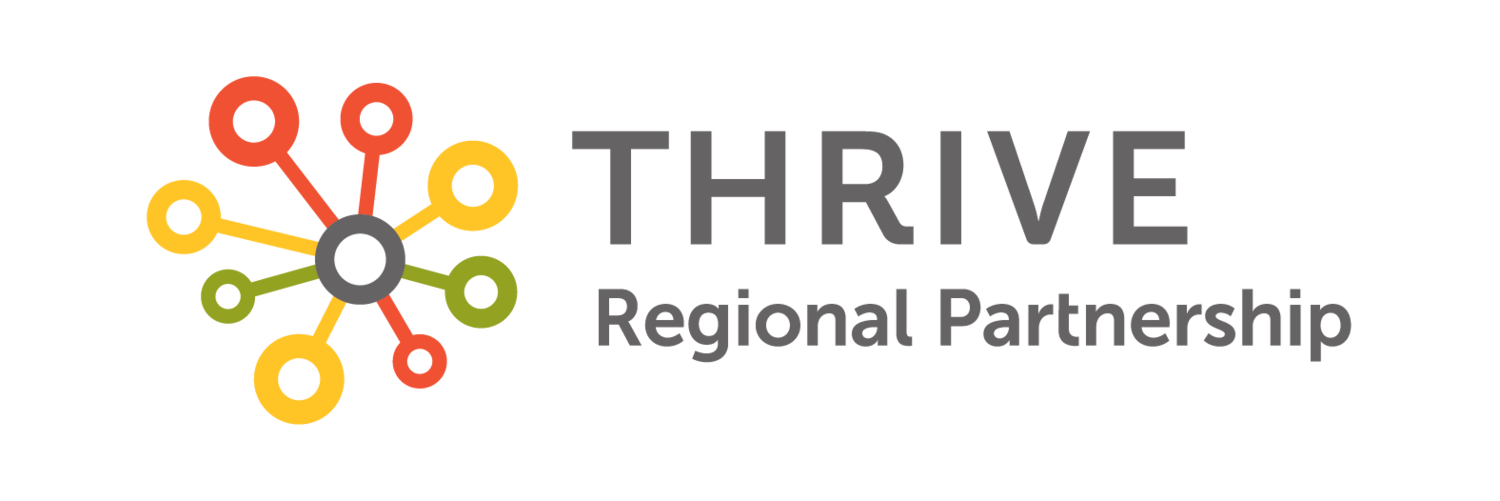South Chattanooga, Dalton, Spring City, and South Pittsburg join the Resilient Communities pilot program, Thrive’s groundbreaking initiative in partnership with the Open Space Institute (OSI) to help communities plan for and address environmental challenges including the increasing effects of climate change.
Under the pilot program, residents of southern Chattanooga, as well as the communities of Dalton, Georgia; Spring City, Tennessee; and South Pittsburg, Tennessee, will work with Thrive and the Open Space Institute (OSI) to understand and address local environmental challenges. Together, OSI and Thrive aim to equip the communities with natural solutions that can be used to protect against fast-moving floodwaters, reduce urban heat island effects, and control erosion to prevent landslides.
“Extreme weather is particularly difficult to address because it is beyond our control. Thrive looks forward to working alongside residents in our region to understand how we, as humans, citizens, and neighbors, can work with nature to build solutions that fit our communities now and into the future.”
“The Open Space Institute is proud of its role in helping communities anticipate the effects of climate change, one of the most pressing issues of our time. Like other communities across the country, residents of the Thrive region are experiencing heightened impacts from climate change, and natural solutions have a critical role to play in addressing this ongoing crisis.
”
As floods, hurricanes, and other severe weather increase under a changing climate, these events can disproportionately affect under-resourced neighborhoods which are more vulnerable and find it more difficult and costly to recover, especially as inflation and the price of construction materials continues to increase.
Communities facing these challenges understand the need for “resilience” -- specifically, the ability to bounce back from disruptions -- to empower municipalities and the neighborhoods, schools, and businesses within them as they anticipate the impacts of climate change.
Under the pilot program, communities participating in the Resilient Communities initiative will develop a pathway toward a custom resilience plan. Along the way, they will be supported by experts in civic engagement and the natural environment. Structured in a cohort model, the program will encourage communities to learn from each other, as well as share knowledge and resources.
To enhance the multidisciplinary approach of the Resilient Communities program, Thrive has partnered with Artists At Work (AAW), a workforce resilience program that builds healthy communities through artistic civic engagement. Local artist and professional dancer Monica Ellison has participated in the planning of the pilot and will support community engagement through the unifying power of movement and breath.
The Resilient Communities program builds upon Thrive’s Cradle of Southern Appalachia collaborative landscape conservation initiative, by connecting people in the tri-state region to its natural treasures, as well as the value they provide to local communities. The Cradle of Southern Appalachia conservation effort is also a focal point of OSI’s $18 million Appalachian Landscape Protection Fund, which harnesses the role of forests in addressing climate change and adds to OSI’s rich legacy of land protection in Georgia, Alabama, and Tennessee.
To learn more about the Resilient Communities pilot program, visit www.thriveregionalpartnership.org/projects/resilient-communities-program.
Partner Organizations
Thrive Regional Partnership (Thrive) is a nonprofit organization that inspires responsible growth through conversation, connection, and collaboration across the tri-state greater Chattanooga region. To learn more, visit thriveregionalpartnership.org.
The Open Space Institute (OSI) protects scenic, natural, and historic landscapes to provide public enjoyment, conserve habitat and working lands, and sustain communities. Founded in 1974 to protect significant landscapes in New York State, OSI has been a partner in the protection of more than 2.3 million acres in North America. Visit OSI online at openspaceinstitute.org.
Artists At Work (AAW) is a workforce resilience program designed to support the rebuilding of healthy communities through artistic civic engagement. Conceived as a public/private partnership, the program provides a salary, health benefits, and professional development resources directly to participating artists; provide financial support to participating local cultural organizations; and connect both to the work of local social impact initiatives in areas such as antiracism, justice reform, sustainability and equitable development, health, economy, homelessness and housing, child welfare, and immigration. It is designed to impact the whole ecosystem of a community. To learn more, visit artists-at-work.org.

